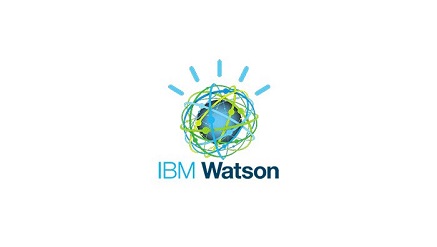News
IBM Commits $70m to Create 25m New Collar Jobs in Africa

IBM is investing $70 million in building much-needed digital, cloud, and cognitive IT skills to help support a 21st century workforce in Africa.
The initiative, “IBM Digital – Nation Africa”, provides a cloud-based learning platform designed to provide free skills development programs for up to 25 million African youths over five years, enabling digital competence and nurturing innovation in Africa.
The initiative will be supported by the United Nations Development Program (UNDP), which has a special focus on fostering market-driven ICT skills in Africa and the Middle East.
This is part of IBM’s global push to build the next generation of skills needed for “New Collar” careers. “New Collar” is a term used by IBM to describe new kinds of careers that do not always require a four-year college degree but rather sought-after skills in cybersecurity, data science, artificial intelligence, cloud, and much more.
For the youth of Africa to be able to benefit from a cognitive future there needs to be a much higher level of digital literacy. At the top of the skills pyramid are developers, who need to know how to create solutions that can leverage the power of cognitive, and entrepreneurs who are aware of the potential.
IBM Digital – Nation Africa is designed to help raise overall digital literacy, increase the number of skilled developers able to tap into cognitive engines and enable entrepreneurs and would be entrepreneurs grow businesses around the new solutions.
Africa has approximately 200 million people between the ages of 15 and 24. By 2040, the continent is expected to be home to the world’s largest labor force, with an estimated working age population of 1 billion (*State of Education in Africa Report 2015).
Yet many African companies cite a local skills gap as one of the major bottlenecks to growth. In South Africa alone, where more than a quarter of the workforce is unemployed, businesses struggle to find appropriate skills, particularly in the IT field.
Through a free, cloud-based online learning environment delivered on IBM Bluemix, the premier cloud platform for business, the initiative will provide a range of programs from basic IT literacy to highly sought-after advanced IT skills including social engagement, digital privacy, and cyber protection.
Advanced users will be able to explore career-oriented IT topics including programming, cybersecurity, data science and agile methodologies, as well as important business skills like critical thinking, innovation, and entrepreneurship.
The initiative aims to empower African citizens, entrepreneurs, and communities with the knowledge and tools to design, develop, and launch their own digital solutions.
Based on Watson, the cognitive online system will adapt and learn. It will review the multiple interactions the education initiative will have with students, to help direct them to the right courses and help IBM refine the courses to better adapt the material for the needs of the users.
Watson will also create a depth of knowledge using anonymous information gathered from interactions with the students. This will help entrepreneurs and developers understand which current Bluemix solutions best meet their needs and refine their idea to help them design a solution that has greatest market potential.
With the aim of equipping as many as 25 million people with sought after IT skills over the next five years, the program will be launched from IBM’s regional offices in South Africa, Kenya, Nigeria, Morocco, and Egypt. This will enable the expansion of the initiative across the continent.
“IBM sees effective, high quality IT education as a key driver of economic vitality in Africa. Through access to open standards, best practices, IBM tools, and course materials, the broad scope of this initiative will enable vital skills development”, said Hamilton Ratshefola, country general manager for IBM South Africa. “In order to find solutions to Africa’s challenges, industries across the spectrum need to enable the existing and future workforce to perform at the forefront of technologies such as cognitive and cloud computing. This will be the key to spurring economic growth.”
The initiative will provide access to thousands of resources, in English, free of charge, including:
Ready-to-use mobile apps
Guides – web guides, demonstrations, interactive simulations, video series, and articles
Online Assessments – A range of self-assessment tests to track the progress of individuals, together with industry recognized ‘Open Badges’ aligned to digital competencies. The badges can then be shared with prospective employers
Volunteers – Creation of a volunteer program to support and promote digital literacy within their communities
App Marketplace – Provision of a platform on which new applications can either be made freely available or sold.
IBM will collaborate with UNDP on opportunities for STEM (Science, Technology, Engineering, and Mathematics) skills delivery, certification, and accreditation. UNDP will work with their network of existing government partnerships to extend the program throughout Africa.
UNDP’s 2015 Human Development Report highlighted that technology is affecting the nature of work by introducing new ways of communicating, new products and new demands for skills. New technologies are also reinforcing and deepening previous trends in economic globalization, bringing workers and businesses into a global network through outsourcing and global value chains.
“These processes are reshaping work and testing national and international policies. In an attempt to address this global challenge here in South Africa, as well as in other priority countries in Africa. UNDP is pleased to leverage its global presence, development knowledge, and long standing partnerships to provide context, traction and scale to this collaboration with IBM,” said Mr. Walid Badawi, UNDP Country Director in South Africa.
IBM has a direct presence in 24 African countries and has made several significant investments on the continent in recent years, including offices, innovation centers and other advanced facilities. The company has a research laboratory in Nairobi, Kenya and opened a second research facility in Johannesburg, South Africa in 2016.
In 2015, IBM rolled out a major initiative to expand its Africa Technical Academy and Africa University Program, providing advanced skills in cloud, analytics, and big data technologies, reaching today to over 150 academic institutions, in the continent.
In September 2016, a memorandum of understanding was signed between the Ministry of National Education and Vocational Training and IBM Morocco, for the launch of P-TECH program (Pathways in Technology Early College High School) in Morocco.
P-tech is an innovative global education model, designed by IBM, in close partnership with American educators. The company is also working with dozens of start-ups in South Africa.
IBM has been present in Africa since the 1920’s, and has a long history of collaborating with educational institutions and providing transformational solutions focused on providing value to higher education and its contribution to society.
IBM engages with communities around the globe by offering its technology, services, and expertise to solve some of the world’s most complex problems, applying technology and expertise to societal issues such as education development.
News
NRS Chairman Outlines Ways Nigeria can Move from Potential to Economic Prosperity

Zacch Adedeji, chairman of the Nigeria Revenue Service (NRS) has called for a paradigm shift in dependence on raw material exports to one that embrace ideas, innovation and the production of complex products as a pathway to sustainable economic growth and national prosperity.

Adedeji made the submission while delivering the maiden distinguished personality lecture of the Faculty of Administration, Obafemi Awolowo University (OAU), Ile-Ife, Osun State, on Thursday.
A statement by his Special Adviser on Media, Dare Adekanmbi, said Adedeji, in the lecture entitled, ‘From Potential to Prosperity: Export-led Economy’, stressed the need to rethink growth through the lens of complexity by not just producing more of the same stuff.
He lamented that Nigeria possesses a high-tech oil sector and low-productivity informal sector as well as lacking “the vibrant, labour-absorbing industrial base that serves as a bridge to higher complexity.”
The NRS boss stated that Nigeria witnessed stagnation in its exportation drive for three decades between 1998 to 2023, and only added six new products in its export basket list between 2008 and 2023.
“Because of our current position, the Harvard Atlas concluded that we are positioned to take advantage of very few opportunities to diversify using what we already know.”
Adedeji urged Nigeria to learn from the world by comparative study of success and failure like Vietnam, Bangladesh, Indonesia, South Africa and Brazil.
“We are not just looking at numbers in a vacuum; we are looking at the strategic choices made by nations like Vietnam, Indonesia, Bangladesh, Brazil, and South Africa over the same twenty-five-year period. While there are many ways to under perform, the path to success is remarkably consistent: it is defined by a clear strategy to build economic complexity.
“When we put these stories together, the divergence is clear. Vietnam used global trade to build a resilient, complex economy, while the others remained dependent on natural resources or a single low-tech niche.
“There are three big lessons here for us in Nigeria as we think about our roadmap. First, avoiding the resource curse is necessary, but it is not enough. You need a proactive strategy to build productive capabilities.
“Vietnam’s success came from integrating itself into Global Value Chains (GVCs). They positioned themselves as the assembly hub for the world’s electronics, importing high-tech parts and exporting finished products.
“This allowed them to “borrow” technology and management skills from abroad to build their own know-how.
“Nigeria, on the other hand, remains a supplier of raw materials to these chains, not an active participant within them. We must realise that productive capabilities are not permanent. The examples of South Africa and Brazil show us that you can actually lose your industrial edge if you are not careful. Over-reliance on the easy path of resource extraction creates economic and political incentives that crowd out the difficult, long-term work of building an industrial base.”
He added that for Nigeria, which is at an even earlier stage of development and even less diversified than these nations, the warning is stark.
“Relying solely on our natural endowments isn’t just a path to stagnation; it’s a path to regression. The global economy increasingly rewards knowledge and complexity, not just what you can dig out of the ground. If we want to move from potential to prosperity, we must stop being just a source of raw materials and start being a source of ideas, innovation, and complex products.
He added that President Bola Tinubu has already begun the difficult work of rebuilding the economy to ensure collective knowledge to innovate, produce and build a resilient economy.
“The journey from potential to prosperity is not a short one, but with the right map and the right resolve, it is a journey we can finally complete,’ he added.
News
CIoD, NIPSS Partner to Deepen Governance, Leadership Standards

The Chartered Institute of Directors Nigeria (CIoD Nigeria) and the National Institute for Policy and Strategic Studies (NIPSS) have signed a memorandum of understanding (MoU) on capacity building, governance advocacy and leadership development across the public and private sectors.

The move, the institutes said, is aimed at deepening ethical leadership, policy coherence and corporate governance excellence in Nigeria.
Both institutions are expected to leverage their combined expertise, resources, and national influence to strengthen the quality of leadership and governance practices that underpin sustainable national development.
The MoU was signed by the Director-General of NIPSS, Kuru, Prof. Ayo Omotayo, and the Director-General/Chief Executive Officer of CIoD Nigeria, Dr Taiwo Nolas-Alausa.
Under the MoU, the parties will jointly design and deliver training programmes, seminars, workshops, and conferences focused on corporate governance, ethical leadership, and strategic decision-making.
A major highlight of the collaboration is the customisation and delivery of CIoD Nigeria’s Company Direction Course 1 (CDC 1) for top-level technocrats, policy initiators, and executors undergoing short courses at NIPSS—providing a structured pathway into professional membership of CIoD Nigeria and the development of chartered directors.
The collaboration also provides a framework for knowledge exchange, with CIoD Nigeria sharing policy insights, research findings, and sectoral recommendations to enrich NIPSS’ policy research and national development discourse, while NIPSS mobilises its institutional goodwill and networks to promote governance education across Nigeria’s public and private sectors.
Speaking on the significance of the MoU, both institutions reaffirmed their shared belief that strong institutions, ethical leadership, and sound governance practices are critical to solving Nigeria’s complex development challenges and positioning the country for long-term growth.
The partnership, which takes effect upon execution, reflects a shared commitment to nurturing leaders of competence, character, and conscience—leaders equipped not only to manage organisations, but to shape policies and institutions that serve the national interest.
News
Leadway Assurance Commences Use of Fintech in Insurance Product Distribution

Leadway Assurance has entered into strategic partnership with Paga, the fintech company behind the Doroki merchant platform for the distribution of insurance products.

In the partnership, Paga will use its technology to deliver comprehensive insurance solutions designed specifically for Doroki merchants. The collaboration aims to help merchants safeguard their businesses against everyday risks and recover quickly from unforeseen events. Speaking on the partnership, the General Manager, Doroki Merchants, Arike Okwunowo, said the development meant that its merchants could focus on growing their businesses with peace of mind due to insurance protection.
“At Doroki, we see our merchants as partners in driving economic activity across Nigeria’s retail landscape. This partnership with Leadway, an insurer with decades of experience and a strong reputation for reliability, means our merchants can focus on growing their businesses with the peace of mind that they’re protected,”
Also commenting on the development, Head of Digital Business, Leadway, Diana Mulili reiterated Leadway’s commitment to expanding access to financial security for every Nigerian, saying, “At Leadway, we believe insurance should integrate seamlessly into the everyday realities of people and businesses.
“By partnering with Doroki, we are embedding practical, easy-to-understand insurance solutions into a platform—helping them protect their income, assets, and livelihoods while continuing to grow with confidence.”

 News3 days ago
News3 days agoNew Study Reveals How Moniepoint Powers Nigeria’s Downstream Oil Sector with Same-Day Settlements and Working Capital Boost

 E-Financial2 days ago
E-Financial2 days agoMajority of Nigerians do not Trust Govt with Tax Revenue – SBM

 Telecom2 days ago
Telecom2 days agoMoMo PSB, SMEDAN Forge Pact to Digitise Nigeria’s SMEs

 News2 days ago
News2 days agoLeadway Assurance Commences Use of Fintech in Insurance Product Distribution

 E-Business2 days ago
E-Business2 days agoNDPC Commits to Balancing Data Privacy, Protection Information

 E-Financial2 days ago
E-Financial2 days agoWhy FirstBank Wrote off N748Bn Bad Loan – Otedola

 Telecom2 days ago
Telecom2 days agoMTN Ignites Teacher Revolution: 5,000 Digitally Armed for Phase Two

 General News2 days ago
General News2 days agoFG Partners World Bank, AfDB on Climate Action














